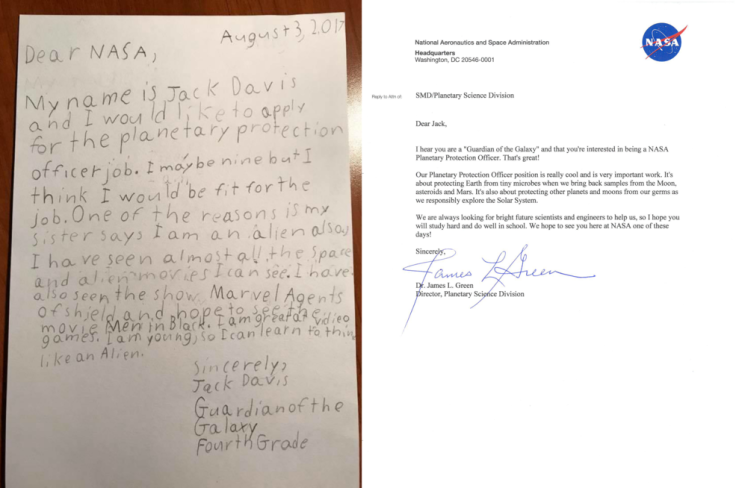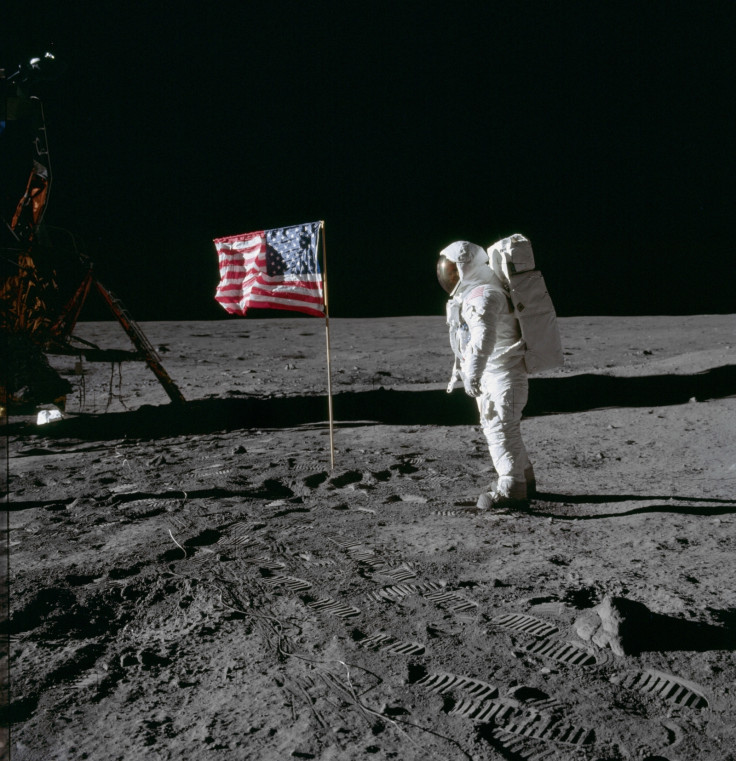9-year-old 'Guardian of The Galaxy' gets Nasa response after sending adorable handwritten application for job
In his application letter, Jack Davis explained he was suitable for the position because he could 'learn to think like an alien'.
Nasa recently announced that it was looking for a new planetary protection officer to promote "responsible exploration of our solar system by preventing microbial contamination of other planets and our own". The position drew widespread attention, not only from scientists and researchers but also from a nine-year-old who felt he had the prerequisites to get the job.
Jack Davis, a New Jersey fourth-grade student and self-proclaimed "Guardian of The Galaxy" sent in his handwritten resume, explaining why he would be a valuable addition to the space agency, thanks to his extensive knowledge of aliens.

"I may be nine but I think I would be fit for the job," the young aspirant wrote. "One of the reasons is my sister says I am an alien. Also, I have seen almost all the space and alien movies I can see. I have also seen the show Marvel's Agents of SHIELD and hope to see the movie Men in Black. I am great at video games. I am young, so I can learn to think like an alien."
Certain labour laws may prevent Davis from getting the job, but given how adorable his application was, Nasa responded with a letter from its Planetary Science Director Jim Green.
"Our planetary protection officer position is really cool and is very important work. It's about protecting Earth from tiny microbes when we bring back samples from the moon, asteroids and Mars. It's also about protecting other planets and moons from our germs, as we responsibly explore the Solar System," the response letter explained.
"We are always looking for bright future scientists and engineers to help us, so I hope you will study hard and do well in school," Green wrote. "We hope to see you here at Nasa one of these days!"
Davis also received a phone call from Nasa's Planetary Research Director Jonathan Rall who congratulated him on his interest in the position.
"At Nasa, we love to teach kids about space and inspire them to be the next generation of explorers," Green said in an article on the agency's website. "Think of it as a gravity assist — a boost that may positively and forever change a person's course in life, and our footprint in the universe."

© Copyright IBTimes 2025. All rights reserved.






















